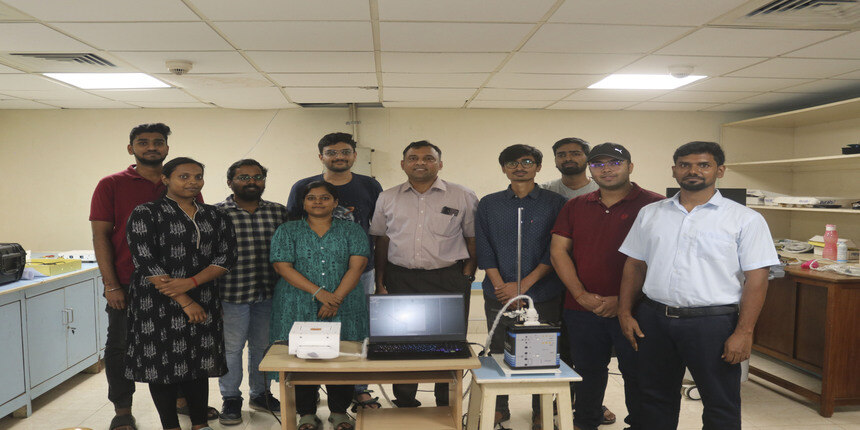IIT Madras develops AI-powered portable ultrasound scanner for sports injury diagnosis
Vaishnavi Shukla | September 17, 2024 | 04:27 PM IST | 2 mins read
IIT Madras’ ‘POCUS scanner’ will allow on-field diagnosis of injury; prototype likely to be ready by this year.

NEW DELHI: Researchers at Indian Institute of Technology (IIT) Madras developed a portable ‘Point-of-Care-Ultrasound’ (POCUS) scanner for sports injury diagnosis and management. The researchers have already been granted permission for several patents required for this technology and are also working towards its production.
The research from the Center of Excellence in Sports Science and Analytics (CESSA) at IIT Madras states that the device could potentially allow for on-field diagnosis of injuries, immediate assessment of the extent of injuries, and help take a call on whether the sportsperson can be allowed to continue to play or not.
The AI-powered POCUS scanner has multiple applications in sports medicine with benefits of no-radiation and better resolution as compared to other modalities. A working POCUS prototype for Musculoskeletal (MSK) imaging, developed at the Biomedical Ultrasound Imaging Lab (BUSi), is currently ready.
The researchers are targeting to complete the product prototype development by 2024. Additionally, testing and collection of pilot data from the field are also being planned in coordination with sports authorities.
Also read JoSAA 2024: Top 10 JEE rankers opt for IIT Bombay; preferred by 246 among first 1,000 AIR holders
IIT Madras: Sports medicine background
Sports medicine specifically focuses on diagnosing and treatment of injuries incurred during any sporting activity. Most of the study is typically done at the hospital site when the sportsperson comes in as a “patient”.
Professor Arun K Thittai, from the department of applied mechanics and biomedical engineering at IIT Madras, emphasised on the need for technologies in sports medicine. He said: “We observed a current technological gap and a need for a point-of-care device for injury management and rehabilitation of elite athletes within routine training premises. A quick assessment for musculoskeletal on the field will help sports players get immediate attention and focus on recovery”.
Chief executive officer Ramesh Kumar of CESSA, IIT Madras, said: “This device is one more innovative product with a complete effort focussed on indigenisation, which we believe will have a huge impact in the sporting field.”
Follow us for the latest education news on colleges and universities, admission, courses, exams, research, education policies, study abroad and more..
To get in touch, write to us at news@careers360.com.